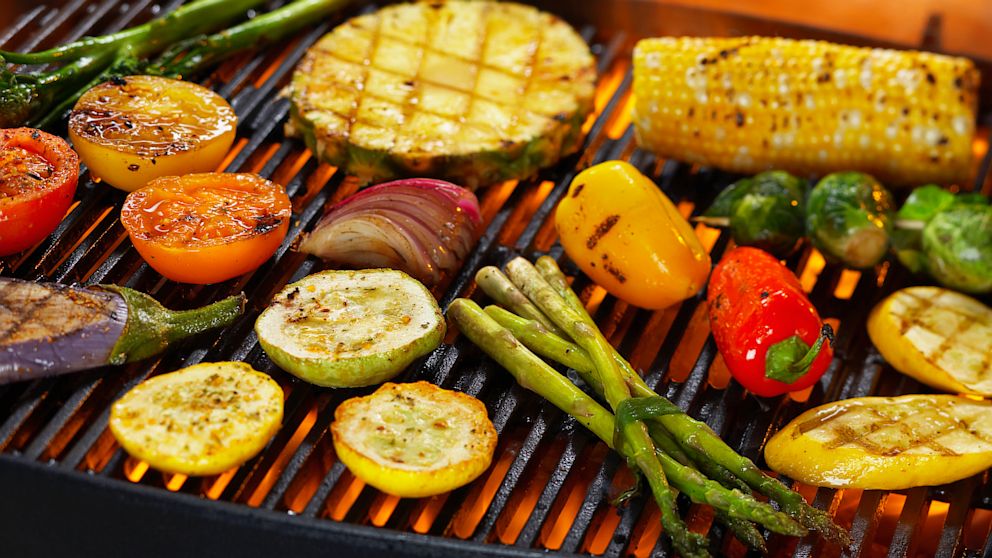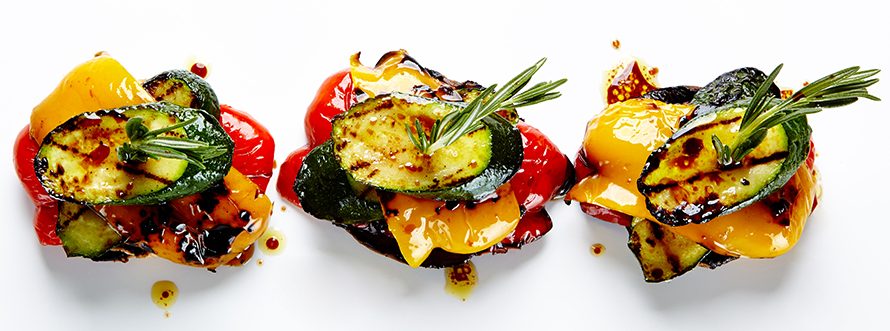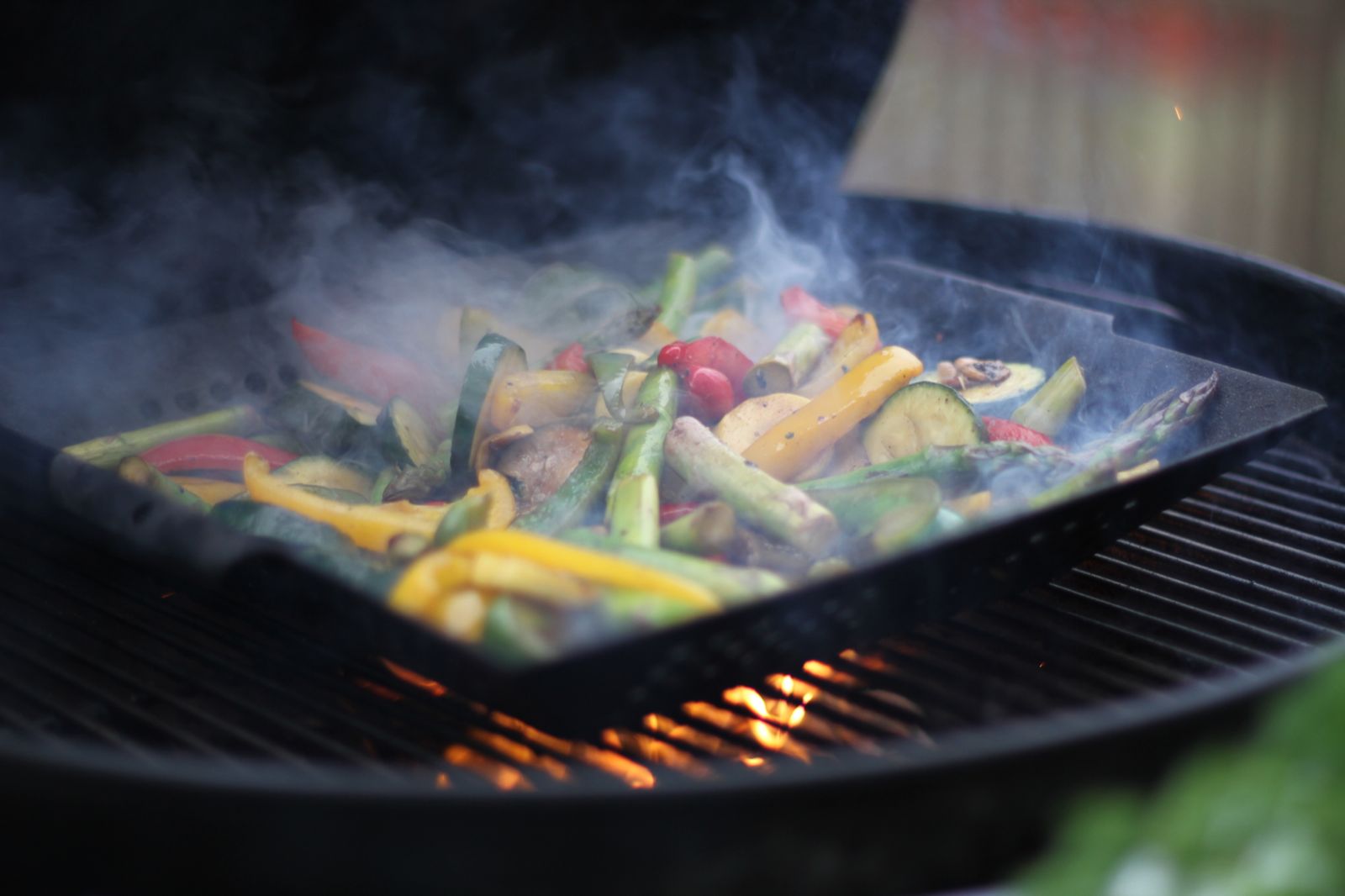
Grilling Vegetables Outdoors: 5 Tips for Success
Few things taste better than food cooked on the grill, and there are a multitude of ways to prepare beef, chicken, pork, and even seafood. However, if you want to try something a little different this summer, consider adding grilled vegetables to the list of foods you cook outdoors. Not only are there a variety of recipes to try, studies show that adding more vegetables to your diet comes with a number of health benefits. If you are new to grilling vegetables, here are five tips that may help you succeed.
1. Add Some Oil
Just as marinating meat makes it more tender and flavorful, treating vegetables with a few teaspoons of oil before you grill them will keep them tender. Some vegetables tend to dry out quickly when you place them on the grill, so brushing them with a bit of oil can prevent this. Consider using a light olive oil to keep the calorie count down and so that it does not overpower the flavor of the vegetables. Brushing the veggies with oil helps prevent drips that might cause the grill flames to flare up and burn them.
2. Pre-treat Root Vegetables
Some vegetables, such as potatoes, carrots, and yams, are tougher than other selections and may take a long time to cook on the grill. To avoid delaying dinner and to ensure that your meat and veggies are all done at the same time, boil root vegetables and potatoes for about five or ten minutes in a pot of salted water before you put them on the grill. Pre-boiling will soften tough veggies and better prepare them for seasoning and grilling. Be careful not to boil them for too long or they will become mushy or fall apart on the grill.
3. Prepare Kabobs with Like Veggies
Making vegetable kabobs is not only fun, but you can prepare them in a huge variety of ways. However, they can be tricky to handle when it comes to grilling them evenly. To prevent uneven cooking, create kabobs that include similar vegetable selections, such as pairing potatoes with carrots or tomatoes with zucchini. The proper pairing of vegetables on a skewer can prevent them from being burnt, mushy, or overcooked.
The type of skewer you use can also affect how quickly some vegetables cook on the grill. Metal skewers get much hotter than wood or bamboo ones and help tougher veggies cook more quickly. Wood skewers are more suitable for serving veggie kabobs, but they may burn through if the grill flame is too high. To prevent this, soak wood or bamboo skewers for about twenty minutes before putting them on the grill and keep the flame as low as possible: this will also allow your veggies to cook more evenly.
4. Use a Simple Marinade
While grilled vegetables can be a healthy addition to your diet, adding sugar, sodium, and preservatives to them in the form of a thick marinade may defeat that purpose. If you want to add a marinade to your grilled vegetables to give them a bit more flavor, consider using one without added sugar or preservatives, such as one made with a HamptonCreek salad dressing. These dressings come in several flavors, such as ranch and Italian, and can add some zest to grilled veggies without negating their nutritional value.
5. Slicing Matters
The way you slice your veggies can have an effect on how fast they grill, so it is important to cut them each a different way. While cuts of asparagus and scallions usually do not need much prep, slicing zucchini, eggplant, and squash into thick rounds will make them into veggie steaks and give you more control over how they cook. Thinner cuts will probably cook faster, and selections such as tomatoes will grill more slowly when they are cut into halves.
Cutting or slicing your vegetables into different shapes can also help you come up with new grilled creations you may have never considered before. For example, instead of making kabobs with your veggies, slice them lengthwise into long, thick squares to make a grilled vegetable platter. Remember to cut the stems off of while mushrooms as well, as this will help the inside cook more evenly.
With so many vegetables to choose from, adding several grilled servings per meal may be simpler than you think. Do not be afraid to experiment and come up with your own creations to increase the variety of veggies you eat every day. Keep the tips above in mind as you grill, and you are sure to enjoy yourself with every meal you create.
Disclaimer: I, Jamie Tomkins, own and operate TigerStrypes Blog located at www.tigerstrypes.com. From time to time you’ll hear about my real life experiences with products and/or services from companies and individuals. Let it be known that I have an affiliation with these said companies, and have received compensation for reviewing their service/product. The review that I give regarding the product/service is based off my own personal experience; I do not guarantee that your experience will be the same.


These are all great tips for grilling vegetables. I agree that the way they are sliced can really make or break how great vegetables turn out when they are cooked.
Something I found interesting was how you really aren’t supposed to add veggies and meat to the skewers together. I’ve always done that, but wow, what a difference when you separate them!
Nothing taste better than veggies cooked on a grill. Thanks for being an amazing cohost on the #HomeMattersParty
Great grilling tips Jamie! FB share! #HomeMattersParty
Your pictures look so tempting, Jamie 🙂 Great tips, too 🙂
Awesome tips! We love to grill our veggies. Asparagus and potatoes are some of our favorites. Happy to be co-hosting the #HomeMattersParty with you this week!
Thanks Nicole. Grilling them always makes them taste amazing!